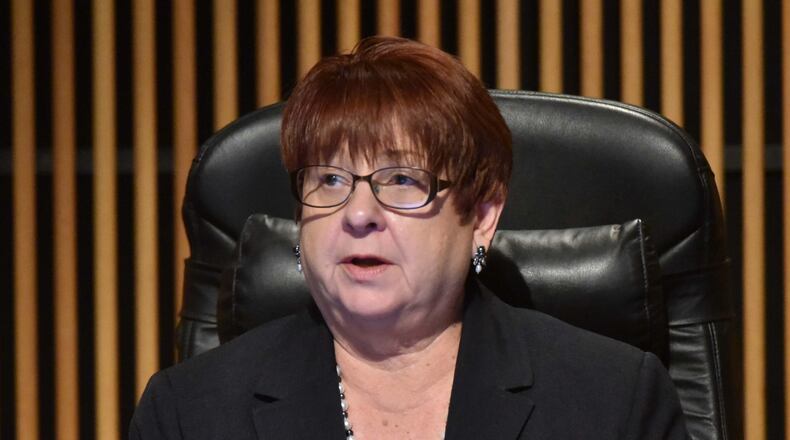For years, Emory Morsberger has been a proponent of the possibilities along the Ga. 316 corridor.
So when Gwinnett leaders on Tuesday approved up to $72 million in loans for a massive development, Rowen, that could eventually bring more than 50,000 jobs to 2,000 acres outside Dacula, he didn’t mind that the public never got to weigh in on the proposal.
“We elect them to move projects forward, to show vision, and they’re doing it very well,” he said. “We’re 100% behind them and excited for their vision.”
That vision — for a research center focused on medicine, agriculture and the environment — could bring billions of dollars of economic activity to the county.
For Morsberger, executive director of the Gateway 85 Community Improvement District, the public investment more than makes sense. To solicit public comment before this point, he said, could have driven land prices higher and cost residents even more.
But for others, not having a chance to share their thoughts on the enormous project is a point of concern.
Penny Poole, president of the Gwinnett NAACP, said she finds the lack of transparency bothersome.
“Why would they take this risk without asking the people who this directly impacts?” Poole said. “It was disturbing. With any project this massive, there should’ve been consent.”
Governments don’t usually go to residents before making deals that involve buying land, whether they’re parks or stadiums. In Gwinnett, both situations have led to issues in the past.
In 2012, an Atlanta Journal-Constitution investigation found the county had paid inflated prices for parkland to some politically connected developers using questionable appraisals. The county changed its land-buying rules after the investigation, and current Commission Chairman Charlotte Nash was elected in the wake of the scandal.
Separately, the construction of Coolray Field, where the Gwinnett Stripers play minor league baseball, was lauded as a win for the county, bound to promote development and draw fans to the area. Average attendance in 2019 was 3,169 people per game, last in the league, and the promised mixed use development around the stadium was never built.
Poole said Rowen’s approval sounded “like a remnant of the good ol’ boys system” that led to issues in the past. She said she thought the proposal should have been a referendum on a ballot.
Concerned citizens will still have a chance to speak out about the project as part of the bond approval process.
And Chuck Warbington, the Lawrenceville city manager who lives close enough to the property that “I could throw a rock and hit it,” said residents will also get to share their thoughts on the project as property is rezoned.
He noted, too, that the county’s comprehensive plan — which was open for public comment — calls for this type of development, and that there have long been discussions of similar projects along Ga. 316.
“I’ve been frustrated we haven’t capitalized on it before now,” he said.
Warbington said the project’s details will continue to be refined. For now, Warbington said his neighbors seem excited about the prospect of jobs and the ripple effect it will have in the area.
“Understand, first of all, that this is a vision,” he said.
But as the vision becomes closer to reality, it becomes harder to stop, said William Perry, founder of Georgia Ethics Watchdogs. Perry said public comment lets people share concerns and suggestions before a project is agreed upon.
After an approval has happened, he said, it’s “kind of like stopping a train when it’s already on the tracks.” By then, he said, leaders often feel like they’ve spent too much money to do anything other than continue on their path.
“It’s absolutely ludicrous that any public body would make any kind of decision without allowing public comment,” he said. “It sounds like a project with very high merits, but to not let people weigh in is inexcusable. It’s a huge amount of public resources.”
Penny Bernath, who lives in Peachtree Corners, said she thinks Rowen could be a good project. But she’s concerned about the environmental impact of developing land that hadn’t been built out before.
Big projects like this one tend to have “a lot of starry-eyed idealism,” she said. Having outside voices could improve the chances of success.
“It could go very sideways,” she said. “I don’t think it’s wise to not consider public input.”
About the Author
The Latest
Featured



